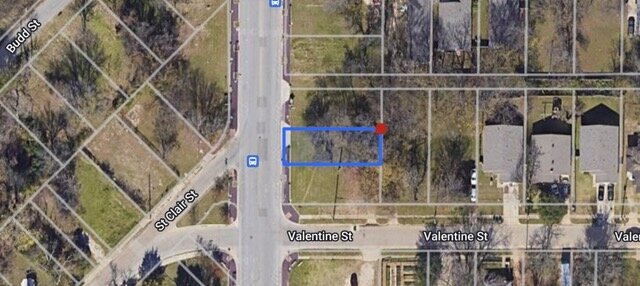
Selling land in Texas can be an exciting prospect, but it also comes with a myriad of financial considerations that many sellers might not initially anticipate. One of the most common questions sellers ask is: “Who pays when selling land in Texas?” The answer, surprisingly, reveals that the seller bears a significant portion of the costs throughout the process. This article delves into the various expenses a seller can expect and explores alternative selling methods to alleviate some of these financial burdens.
The Initial Costs of Selling Land
Surveys and Site Analyses
Before listing your land for sale, you may need to invest in a survey or site analysis. These steps are crucial for determining the boundaries of your property and assessing its suitability for various uses.
Land Survey: A professional land survey can cost between $500 and $1,500, depending on the size and location of the property. This survey confirms the exact dimensions of the land, identifies any encroachments, and ensures that the legal description matches the actual property.
Site Analysis: Depending on the type of land and its intended use, you might also need a site analysis. This could include soil tests, environmental impact studies, and assessments by geologists or other experts. These analyses can cost several thousand dollars.
Pre-Listing Preparations
Once you have the necessary surveys and analyses, you’ll likely work with a real estate agent to market your property. Here are some additional expenses you might incur:
Real Estate Agent Fees: While agents typically work on commission, you may still need to cover some upfront costs, such as marketing expenses. These can include professional photography, drone footage, and advertising costs.
Property Maintenance: Maintaining the land while it’s on the market is crucial. This can include clearing brush, maintaining pathways, and ensuring the property is visually appealing. These maintenance tasks, although seemingly minor, can add up over time.
Ongoing Costs During the Selling Process
Holding Costs
During the period that your property is on the market, you will incur ongoing expenses, often referred to as holding costs. These can be significant and include:
- Mortgage Payments: If you have a mortgage on the property, you will need to continue making these payments until the land is sold.
- Property Taxes: Property taxes must be paid regularly, and these can be substantial depending on the property’s assessed value and the tax rate in Texas.
- Insurance: Keeping the property insured is essential to protect against any potential liabilities or damages while the land is on the market.
- Utilities: If your land includes structures that require utilities, such as water or electricity, you’ll need to cover these costs as well.
Legal and Administrative Costs
Once you have a buyer, several legal and administrative steps must be completed before the sale is finalized. These steps involve additional costs, typically borne by the seller.
- Legal Fees: You may need to hire a lawyer to draft and review contracts, address any legal issues, and ensure a smooth closing process. Legal fees can vary widely but expect to pay several hundred to a few thousand dollars.
- Title Company Fees: The title company will perform a title search to ensure that there are no liens or other encumbrances on the property. They will also handle the closing process. Title company fees can range from $500 to $2,000.
- Recording Fees: There are fees associated with recording the deed and other necessary documents with the local government. These fees are usually a few hundred dollars.

Receiving Payment and Final Costs
Receiving Payment
Once all the legal and administrative steps are complete, you will receive payment for your property. This payment might come directly from the buyer if they are paying in cash or from the buyer’s bank if they have secured a mortgage.
- Mortgage Payoff: If you have a mortgage on the property, the proceeds from the sale will first be used to pay off the remaining mortgage balance.
- Lien Payoff: Any outstanding liens on the property must also be satisfied before you receive the remaining funds.
Real Estate Agent Commission
The final significant cost is the real estate agent’s commission, typically a percentage of the sale price, usually around 5% to 6%. This commission is deducted from the sale proceeds, reducing the amount of money you ultimately take home.
The True Cost of Selling Land
To sum up, when you sell land in Texas, you will pay for:
- Surveys and site analyses
- Real estate agent fees and marketing costs
- Ongoing holding costs (mortgage, taxes, insurance, utilities)
- Legal fees, title company fees, and recording fees
- Real estate agent commission
These costs can add up quickly, often amounting to thousands or even tens of thousands of dollars, depending on the property’s specifics and how long it remains on the market.
An Alternative: Fast Cash Offers
Given the substantial upfront and ongoing costs associated with selling land traditionally, many sellers are exploring alternative methods, such as fast cash offers. This approach can significantly reduce the financial burden and expedite the selling process.
Benefits of Fast Cash Offers
- No Upfront Costs: Cash buyers often purchase properties “as-is,” meaning you won’t need to invest in surveys, site analyses, or property maintenance.
- Quick Closing: Cash sales can close in a matter of days or weeks, compared to the months it can take to sell a property traditionally. This means you’ll avoid many of the holding costs.
- No Agent Commissions: By selling directly to a cash buyer, you eliminate the need for a real estate agent and their commission fees.
- Certainty and Convenience: Cash offers provide certainty and eliminate the uncertainties and contingencies often involved in traditional sales, such as financing approvals and prolonged negotiations.
The Process of Selling for Cash
Selling your land for cash is typically straightforward:
- Initial Contact: Reach out to potential buyers and provide information about your property. This might include the land’s location, size, zoning information, and any existing structures.
- Offer Evaluation: Cash buyers will evaluate your property and make an offer. This offer is usually lower than the market value, reflecting the convenience and speed of the transaction.
- Acceptance and Closing: If you accept the offer, the buyer will handle most of the paperwork, including title searches and deed transfers. Closing can occur quickly, and you’ll receive your payment without the long wait and additional costs of a traditional sale.
An Alternative: Owner Financing
Owner financing is another alternative to traditional land sales and fast cash offers. This method allows the seller to act as the lender for the buyer, making it possible for buyers who might have difficulty securing a traditional mortgage to purchase the land.
Benefits of Owner Financing
- Attract More Buyers: Owner financing can make your property accessible to a wider pool of buyers.
- Potential for Higher Sale Price: You might be able to negotiate a higher sale price or interest rate.
- Steady Income Stream: Instead of receiving a lump sum payment, you’ll receive regular payments over the term of the loan.
- Faster Sale: Properties with owner financing options can often sell more quickly.
The Process of Owner Financing
- Negotiation: The seller and buyer negotiate the terms of the financing, including the purchase price, interest rate, down payment, repayment schedule, and loan duration.
- Drafting the Agreement: It’s essential to have a legally binding agreement that outlines all the terms of the financing. This contract should include details about the property, payment terms, interest rate, and what happens in case of default.
- Legal and Title Work: Both parties should work with a real estate attorney to draft the agreement and ensure that all legal aspects are covered. A title company can help with the title search and ensure there are no liens or encumbrances on the property.
- Recording the Agreement: Once the agreement is signed, it should be recorded with the local government to protect both parties’ interests.
- Payment Processing: Set up a system for processing payments, whether through a third-party service or directly between the buyer and seller. It’s important to keep accurate records of all payments received.
Risks and Considerations
While owner financing offers many benefits, it also comes with risks:
- Buyer Default: If the buyer fails to make payments, the seller may need to go through the foreclosure process to reclaim the property, which can be time-consuming and costly.
- Property Maintenance: The seller must ensure that the buyer maintains the property to avoid devaluation.
- Interest Rate Risk: If market interest rates rise, the seller might be locked into a lower rate.
Conclusion
Selling land in Texas involves various costs and considerations, from initial surveys and analyses to ongoing holding and legal expenses. While traditional sales methods can be costly and time-consuming, alternatives like fast cash offers and owner financing provide viable options to alleviate financial burdens and expedite the process. Understanding the nuances of each method will help you make an informed decision that best suits your financial situation and selling goals.
